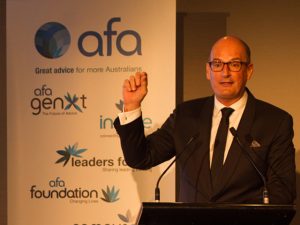Riskinfo was delighted to team up with Australia’s newest stand-alone insurer – MLC Life Insurance, to speak with your peers about the future of life insurance advice in Australia.
Our conversation was an honest assessment of where the life insurance industry is presently positioned in terms of how it is perceived by consumers and also how the industry sees itself.
This experienced group of advisers and other industry representatives acknowledged some of the key issues the industry must face – issues such as trust, collaboration and providing enhanced client outcomes through better use of technology and data.
While it was clear from the discussion that the industry continues to face significant challenges, this Round Table panel was exceptionally optimistic about the opportunities that lie ahead for the sector. Read on to find out what your fellow advisers and other industry stakeholders have to say about the issues that are impacting you every day in your business, and how they think these challenges should be addressed…
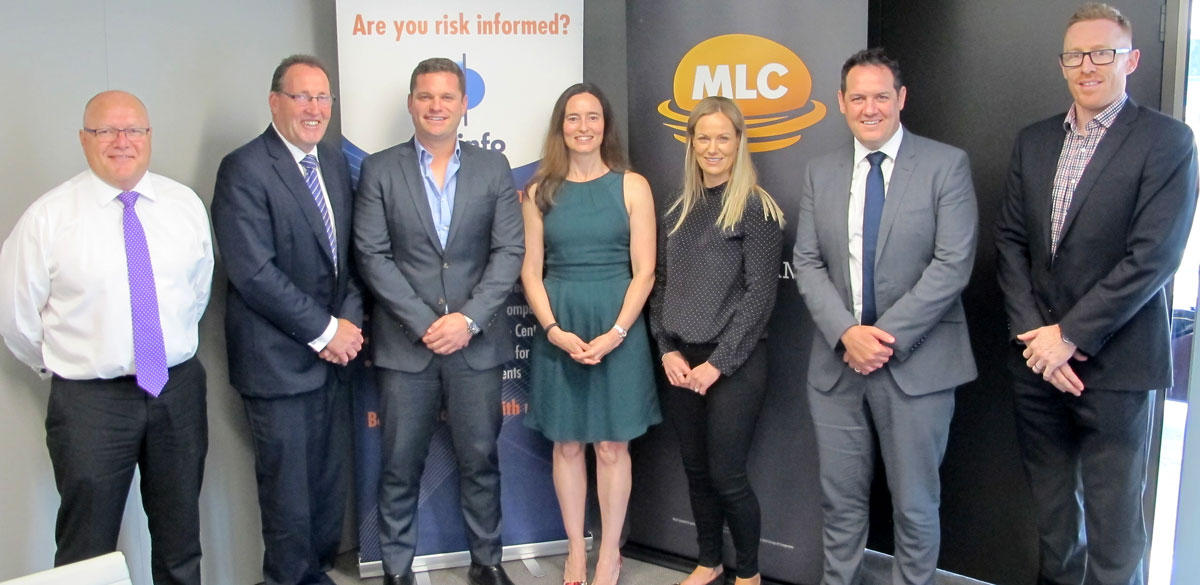
Panelists (L – R)
- Peter Sobels: Publisher, Riskinfo
- Wayne Handley: Founder, Bombora Advice
- Ryan Watson: CEO, Tribeca Financial
- Melissa Heyhoe: Chief Customer Officer, Retail Advised Insurance, MLC Life Insurance, Co-host
- Rachel Martin: Co-owner, Planning For Life
- Russell Hannah: General Manager, Retail Advised Insurance Sales, MLC Life Insurance
- Rob Vitnell: General Manager (Vic), AFRM
Table of contents (Click these links to move directly to those topics)
- The Post-LIF World
- The life company perspective
- Collaboration and trust
- The changing face of the life insurance customer
- A change in thinking?
- Final words – Life Insurance: Advice 2020
The Post-LIF World – Back to top
Our panel commenced by comparing notes on how the Life Insurance Framework reforms would impact their businesses and how life companies can support and collaborate with advisers in this period of transitional change.
Tribeca Financial’s founder and CEO, Ryan Watson, told the panel his was a holistic advice firm based on three pillars of investment, cashflow and contingencies (ie estate planning and risk insurance). His style of business has always written risk (contingency) business on a hybrid commission basis, meaning at least the remuneration requirements within the LIF reforms won’t have an impact on Ryan or his business. “You might be surprised, but LIF really hasn’t been on our radar,” said Ryan, continuing that he restructured his business a few years ago along the lines of long-term business model. At this stage for Ryan, no elements of the LIF reform package will have any impact on his business.
“We’d love to be entirely a fee for service business, including for risk insurance advice, but I don’t think the consumer is ready to pay for that advice yet,” said Ryan.
I agree that consumers won’t pay for risk-only advice
Planning For Life co-owner, Rachel Martin, said hers was a similar-structured business to Tribeca. “We offer wealth creation and other financial planning advice and services. I don’t get clients walking through our door asking for risk advice or saying ‘I want income protection.’ Instead, they come into our office asking for help and advice on how they can achieve their specific goals which include saving a deposit for their first home, funding education for their children and some guidance around what they need to do with regards to retirement planning – these are the most common goals,” she said.
“Like Ryan, we haven’t made any changes in anticipation of the LIF reforms and we don’t intend to at this moment. I agree that consumers won’t pay for risk-only advice. However, our financial plans always address a client’s risk needs as a matter of importance and the initial advice fee covers the cost of a holistic financial plan.
If commissions disappear, all this will do is limit the number of people who will be able to seek advice from us.
Rachel’s business is already running a remuneration model for life insurance solutions that is a combination of hybrid and level commission. “It depends on the client’s capacity to pay, and for me, it’s a way to discount our advice fee if I know we’ll be receiving a commission as part of implementing the financial plan that’s in our client’s best interests.” Rachel also warned that “If commissions disappear, all this will do is limit the number of people who will be able to seek advice from us.”
Unlike Rachel, Rob Vitnell works within a risk specialist advice business – Australian Financial Risk Management. Rob is both a senior adviser and Victorian General Manager at AFRM. “Our business is very different,” said Rob. “We’re risk only, so we can’t offset costs in other parts of the business through fees for wealth accumulation advice. We have always run a hybrid commission model. For us, the LIF reforms are almost a non-issue, at least in the short to medium term.” But Rob cautioned that “…if we end up in a world of a flat 20% commission, then that would be a different kettle of fish. If that occurs, we’ll need to work more diligently with insurers such as MLC to come up with an alternative approach [to our business model].”
Rob thinks that if AFRM follows the hybrid commission transition model from 1 January 2018, the firm may see a slight increase in revenue, all other things being equal. He told the panel, however, that for the smaller risk advice business that presently operated on a mainly upfront commission basis, “I think we’re going to see a natural rate of attrition in that space. But I think for other businesses like ours, there’s potential uplift in the short-term.”
In terms of how the LIF reforms have come about, Ryan noted there are a lot of angry and frustrated advisers asking why their remuneration has become an issue: “I think the negative thing for some advisers in the industry is the frustration with where the LIF reforms have come from – why it is ‘front and centre’.”

Wayne Handley, Founder of life risk only licensee, Bombora Advice, told his peers that 95%+ of the advice provided by his network is risk advice business. He thinks Ryan is “…right on the money” in terms of adviser frustration with how the LIF reform process has unfolded.
Through the process, Wayne says he has spoken with industry associations, Government ministers, senators, life company CEOs, and the FSC, none of whom could articulate, according to Wayne, the benefits to consumers that are intended to stem from the incoming LIF reforms. He emphasised it’s not the changes themselves but how the process has been conducted.
Wayne holds the view that the adviser voice must continue to be heard; otherwise he believes the industry will gravitate towards a 20% flat commission, which he says will decimate the advised life insurance sector.
Wayne said many of the 30+ advisers within the Bombora network serve top-end clients referred to the business by accounting and financial planning firms. He is a firm believer that good financial planners appreciate they should not tamper with life insurance advice or be a part-time risk adviser due to the nuances and complexities involved in a genuine understanding of life insurance and the processes supporting this advice activity.
He re-emphasised an earlier point that risk advisers do not generally have the opportunity to cross-subsidise the cost of their advice services.
Addressing the impact of the LIF reforms, Wayne said there are two schools of thought amongst advisers in general:
- “Members of our network are unanimous – we’re just going to get on with our business. It is what it is. We have to grasp the many opportunities that are emerging for professional risk advice.”
- Some will leave the sector due to a combination of remuneration changes and educational requirements that Wayne believes will have a severe impact.
The life company perspective – Back to top
MLC Life Insurance’s GM of Retail Advised Insurance Sales, Russell Hannah, emphasised the critical importance of collaboration between industry stakeholders as he responded to the comments that had been made by our adviser and licensee panellists. He said the changes being discussed represent significant industry change:
“The premise is that, regardless of where you sit in the value chain, there is a need for us all to play a role. Whether you’re working in an advice capacity, as a licensee, as an industry association or with a manufacturer – there is a requirement that we have a look at the way we operate. Industry participants don’t operate in isolation. Each of those respective functions plays a key part in aligning with each other to deliver what is a ‘noble cause’ (referred to already by Wayne and Ryan). There is no greater value that can be provided than delivering hope in someone’s darkest hour. And that’s what this industry is built on.”
Russell continued, “The challenge we all face is how we ensure more people and more families are protected. How do we ensure that we build and develop the necessary trust that means more customers will willingly participate in our industry so they are adequately protected if and when the worst should happen to them or their family?
Responding to a question about how this principle applies to MLC Life Insurance working with advisers in the wake of LIF legislation, Russell said “We’ve operated as an industry in a particular way for a long time. One of the issues we have to recognise is that customer expectations are changing. We need to ensure that their interactions with our industry are far more efficient and relevant, similar to what they are experiencing in other aspects of their lives, such as Uber and Airbnb. Russell cited the investment MLC Life Insurance is making in the area of digital capability and technology as an example of seeking to deliver an enhanced and efficient customer experience.
Round Table co-host, Melissa Heyhoe, is Chief Customer Officer, Retail Advised Insurance at MLC Life Insurance. She made the observation that the evolution of each of the advice business models around the table occurred independently and in isolation of the Life Insurance Framework reform process and for the most part seem to be complementary to the intent of the now-legislated reforms.
Referring to more professional, more corporatised business models, Melissa said “We are working with advisers to help that set up.” She told the panel that as part of assisting with setting up these evolving advice business models, MLC Life Insurance is building a new team (Business Engagement Managers) to help advisers with business efficiencies, client engagement and retention.
the perception held by the consumer market is also its reality
Collaboration and trust – Back to top
Looking at the ultimate goal of all industry sectors collectively serving the best interests of clients, Melissa feels that the lack of trust in the sector is preventing it from achieving this collective goal. While MLC pays out around $1billion in claims each year, she said the perception held by the consumer market is also its reality, and that perception of the sector “…is not great at the moment.” Melissa also agrees she works in a noble industry and is proud of what she does and proud of being there for her customers. She wants the broader community to better recognise the work of the industry as well.
Melissa shared an example of a current trial in which MLC Life Insurance colleagues are working with their new majority owner, Nippon Life. “They’ve had a program in place for a number of years, which is about ongoing customer engagement and rewarding loyalty. We’re trialling a similar program at the moment through advisers, direct to customers and also via digital channels.” The basis, says Melissa, is annual contact with the client (not just at policy renewal), reconfirming what the client is currently covered for, why they have that cover, whether they have had any events throughout the last year that they could claim for, as well as any changes in their details.
“We don’t just want to engage with our customers at the point of policy inception and then with those unfortunate enough to have to make a claim. There’s a synergy with what we can do [as an insurer] and how advisers can interact with their clients.”
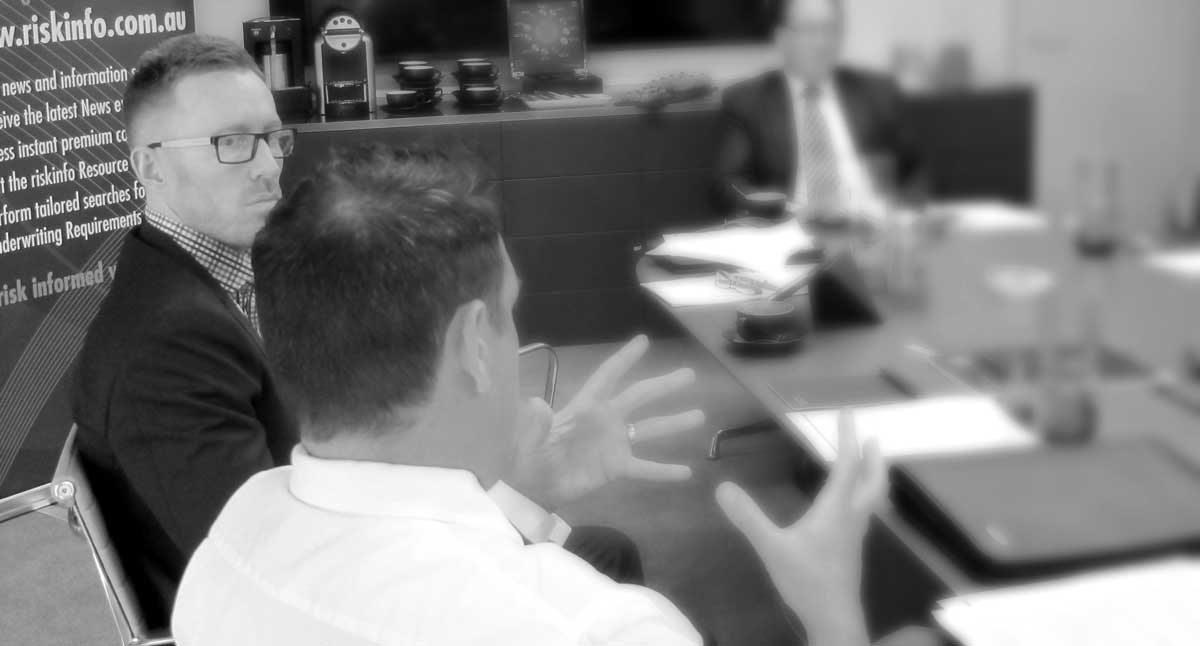
Following a question from Ryan about adviser involvement, Melissa said the current trial included working with a group of advisers to coordinate contact with those advisers’ clients, thereby allowing advisers to complement the life company contact with their own follow-up.
“For some advisers, this is a piece of work we can take off their desk,” said Melissa. “For other advisers, they may prefer to retain that role.”
Russell also raised the point there is a large group of current clients who are classified as ‘inactive’ by some advice businesses and it is often these clients who benefit from this additional life company contact.
On the issue of trust, Wayne observed that “People trust people – they don’t trust institutions.” He believes it is the institutions which have caused most of the trust issues. He said there is no lack of trust in advisers: “…thousands and thousands of Australians are receiving and paying for advice each and every day, said Wayne, but he added, “…unfortunately we just don’t have enough people providing advice.”
Looking at collaboration and how the three elements within the industry – life company, licensee and adviser, can collaborate better, Melissa said “We’re one industry. We believe in what we do. We believe in our purpose. We believe that we’re going to be there when things go horribly wrong for our clients. For this to be achieved there must be a collaborative effort between all elements of the industry. Differing views are healthy. But for the consumer, all that matters is the result of our combined endeavours. If we’re not united in what we do, there’s a real risk to the industry of it not being able to deliver.”
Wayne commented, “This sector has been built on trust in relationships and shaking hands and looking people in the eye.” But he added, “I’ve never seen the trust element as low as it is after what we’ve gone through [in recent years]. What has happened has hurt good people. I’m speaking from the heart. It has hurt professional people who do the right thing by their clients, day in, day out..
Asked what has to change, Wayne responded, “After war comes peace. We have tried to move as quickly as we can into a peaceful environment, and it’s imperative for our business and our customers to do that. As a business we have a very clear direction on what we believe the business of the future has to look like. We welcome engaging companies so they can understand our model and we can understand how we can best work together. All members of our network are on the same page when it comes the future and so it’s very important that our suppliers understand that and can work with that style of model. We’re about rebuilding that lost trust.” Wayne wholeheartedly agreed with the notion that the time for collaboration has arrived.
All we want to do is help people change their lives and achieve, but sometimes it’s just so really, really difficult
Rachel generally supported Wayne’s comments, including those related to trust. She noted the only additional point to add from her perspective was that “…sometimes it just feels too hard to give the advice that will help people get themselves into a better position and protect themselves financially.” Rachel said this difficulty arose in part because costs are increasing from a service delivery point of view and that compliance requirements were also making things difficult. She said she and her co-owner sometimes have days where they ask each other ‘Why are we doing this?’ “All we want to do is help people change their lives and achieve, but sometimes it’s just so really, really difficult.”
She told the panel how much life companies want to work with them “…but it costs us so much to actually work with them to get the insurance in place and we’re in a position where we sometimes have to warn the client that it’s just like working with a bank, but we’ll do whatever we can to help you. So, we’re the ones with the good relationship with the client – they trust us but we have to prepare them for the fact they may have a ‘crappy’ experience in having their personal insurance accepted.
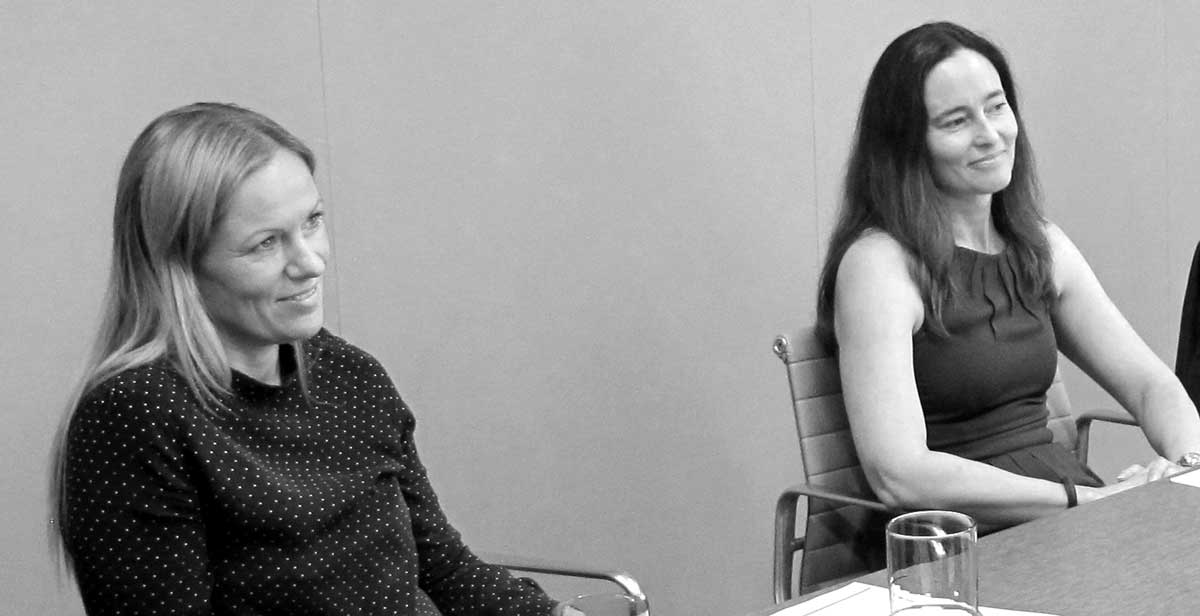
Ryan was in full agreement with Wayne and Rachel – that trust within the industry is as low as it’s ever been. “Part of being your own licensee is that you don’t want to become an island. So we have a community of advisers who we interact with. We’ve also taken the approach of worrying only about what we can change; not what we can’t,” he said.
“Like Rachel, we tend to position with the client what the experience will be when applying for life insurance and unfortunately we don’t expect much. So, we’re really taking charge of what we can influence and change.”
Of those areas that are outside of Ryan’s and Tribeca’s control, he said it’s the relationship with the manufacturers that is the key. “We don’t expect things to change quickly. But if you’re asking me if there’s one key thing we’d like to see changed, it sounds very simple: Do what you say you’ll do.” Ryan agreed his sentiment was similar to that of Wayne: “This is probably along the lines of what Wayne is advocating – look me in the eye and do what you say you’ll do.”
Rob: “As an own-AFSL business, AFRM is both the licensee and adviser. We will always try to develop relationships with insurers, but we won’t do business with businesses who we don’t collaborate with; who we don’t have a relationship with.
“We have a panel of preferred providers and we actually keep them accountable on a quarterly basis by placing a range of parameters and requirements for each of the insurers on our panel, which they must meet in order to continue to be eligible to conduct business with AFRM. So we’ve been very forthright over a long period about what collaborating with us means.”
Rob is, however, greatly concerned about what he referred to as a negative smear that has been cast across the whole industry in recent times. “And that is one reason we have evolved and that’s why I try to change the language to being all about claims advocacy. We should be singing from the rooftops that we do a great job with claims and we generally get money paid to our clients who deserve it, are entitled to it and who need it. We should be talking about the good stories; not the bad stories.
The final word on issues surrounding trust and collaboration was from Melissa: “It sounds like we’re in a similar position to move forward together. That’s what it sounds like to me. That encourages me.”
The changing face of the life insurance customer – Back to top
The panel changed its focus to the customer revolution that is causing product manufacturers to change the way that they deliver life insurance solutions and to how the industry can more closely reflect the ‘Uber’ experience for the customer.
Asked whether there was one single ‘Uber’-type initiative or experience each of our panellists would implement, there appeared to be two key areas of focus:
For Rachel, the Uber change involved technology and the new business process: “It’s improved in the last few years. The transition to processes online is making it easier for us to get new insurance in place. If that part of the process – just getting clients’ insurance in place, could be easier for us, then that would just be massive,” said Rachel.
As Rachel was relating this area of need, Russell assured the adviser panel that MLC Life Insurance is also envisaging a much more streamlined, ‘Uber’ new business process.
Rachel said if the industry can make processes more efficient “…and it’s already heading in the right direction, then that would be great.” She highlighted her younger clients, especially her 20-something clients who ‘eat up’ the online experience and for whom doing things efficiently is important. She says that efficiency and the experience is very important to them. They will be happy to accept Rachel’s recommendations which will help them achieve their goals and objectives “…as long as it’s easy.”
Saving time for people is critical, said Melissa. “So if you can save time for people it is worth so much If you can solve that, and in doing so, save time in the adviser’s business, then we’re making the relationship even better with your client.”
According to Rob, there is no silver bullet and there is no ‘Uber’ experience that he can see for life insurance. He thinks there is a range of solutions the industry can implement in order to get to the equivalent experience, but there’s no one single answer.
Rob sees the new straight through application and underwriting service being mooted for the Australian market, UnderwriteMe, as an example of one of the solutions that can combine with others to ultimately reach the life insurance ‘Uber’ experience. “I think that’s a really big step forward in terms of the new business experience, using technology and almost getting insurers to ‘bid’ for the client’s business via the centralised UnderwriteMe portal. That’s a good start at the beginning of the process.”
Rob also highlighted customer retention, other insurer process efficiencies, data downloads and more efficient access to information – more readily, more efficiently, more easily – as additional incremental solutions leading to better outcomes for all consumers, advisers and insurers. “Better information will be a huge gain for good solid businesses that are built on hybrid [commission] structures that deliver ongoing services to clients. And that also plays into big data,” he added.
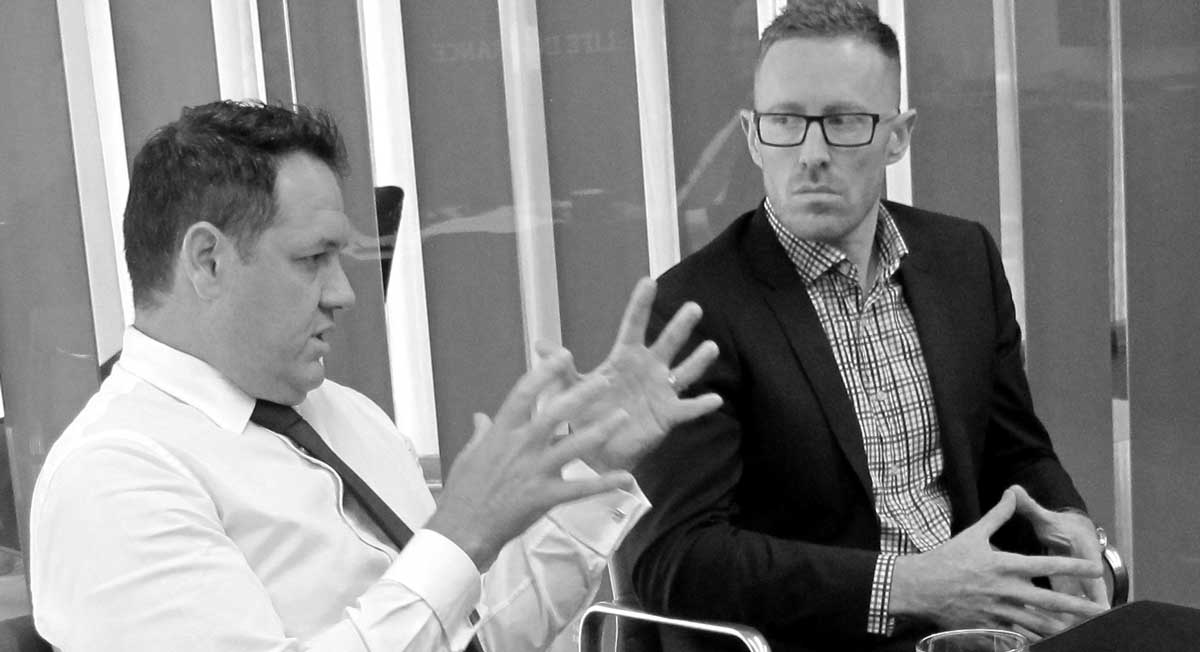
Rob said the industry must really build the claims advocacy conversation. He recognised improvements in front-end engagement with consumers via the emergence of health and wellness services “…but what’s happening at the back end? Where’s the health advocacy? We deliver the [claim benefit] cheque, but what happens after that? Where do these clients then go? Where do the families of these clients go? …There’s so much more to their lives and to their families’ lives that we can help with as an industry.”
Ryan’s ‘Uber’ experience relates to the personal statement – the life insurance application process. “If we wanted an Uber experience, that’s where it should be – personal statement, application, underwriting process,” said Ryan, who advocated the industry needed to be smarter in how it asks questions and accesses information: “We need better, more sophisticated questions that offer: ‘If this, then that’-style of solution.”
Ryan suggests because there are ultimately only three or four very big reinsurers, they are not innovating sufficiently and this cascades down to the life product front line at application time. “But that’s the key for us – finding better AI (Artificial Intelligence) in the underwriting process.”
He also asked where was the product option that could immediately exclude mental health and back claims events: “I’d take that straight away for a 30% discount”, said Ryan. “Where’s the evolution to that type of product offer? So, the key for us is the personal statement. We know where all the [process] problems are – what are we doing to address it?
Wayne agreed fully with Ryan’s assessment: “That front end piece – pre-assessment, is the killer,” he said, while also lamenting the fact that the industry has yet to develop a standard application form, characterising the present application system as archaic: “I can’t believe we’re still dealing with different application forms because the product manufacturers are trying to protect their competitive advantage.”
The other area where an Uber disruption should occur, according to Wayne, is the back-end data feed, which he says is critical. “Unfortunately, the life insurance adviser is the ‘poor relation’ of the sector,” he said, when it comes to the ability to access real-time client information. “Look at the money that’s been spent at the back end on investment product services. We [risk businesses] get nothing. Trying to get data – real time data, is nearly impossible. And that’s why we end up with a crappy client experience,” he said.
Wayne believes the industry will see more life company investment in that back-end data feed area. “Managing real-time data is so critical to people,” affirmed Wayne. If the [life company] executives can come out to a few offices and look at what we’re doing and talk to staff, the answers are there. So, they’re the two areas,” said Wayne, “…but that personal statement in particular is where the Uber experience potential exists.”
Ryan shared that some of his colleagues “… don’t want to write risk anymore because it’s just so difficult.” He continued, “They are high detail advisers; one previously being an accountant – very left brain, and you should be able to underwrite according to left brain (logical, analytical, and objective versus intuitive, thoughtful, and subjective),” said Ryan, who repeated his logic mantra: “If this, then that… and we haven’t got there yet.”
Rachel thinks it’s more than that. “I agree it’s about finding different ways to ask questions but I also often think about optionality for customers and advisers, such as the younger generation who is generally more prepared to provide more of their personal details. Talking about the Uber experience, what if no-one was ever asked a single question, but their insurability was based only on the personal information available in the public domain?”
Ryan agreed and suggested the potential, if not for zero questions, then at least for personal statements to be reduced to five or ten questions at most.
Russell acknowledged the frustration in the room with the inefficiencies in both the front-end and back-end life insurance processes. He said this was also shared by his colleagues inside MLC Life Insurance.
“As an industry, we’ve applied ‘blueprint’ thinking to multiple areas of the life insurance process for far too long, and it’s time for a quantum shift to be made.” He added that data and technology should be looked at as the ‘enablers’. The challenge historically, according to Russell, has been the level of investment required to deliver these enablers.
Rob added it helps when a life company has a longer-term vision, such as five years, and made the point that Nippon Life and other Japanese life companies tended to think longer-term.
Russell agreed that in terms of finding and delivering an ‘Uber’ experience, “…we as an industry have to move with speed in order to remain relevant and contemporary because we’re now looking to serve consumers who are using their experiences with other industries as a guide to what their expectations are when dealing with the life insurance industry.”
There is so much innovation possible and an exciting potential for the use of technology
A change in thinking? – Back to top
Wayne challenged the panel and the industry itself to consider a shift in thinking. He said there were some good points being made on this topic, “…but I think we have to change our thinking. We use the term ‘policy’. But what we’re actually doing is selling someone a ‘life program.’ If we can get our head around the fact that we’re going to help our clients go through life with an insurance program, and what they might need along that journey, then that will inform how we can use big data better and how we can use information flow.”
Wayne says there is a paradigm shift needed, characterising current life insurance application and policy holder experience as ‘negative, negative, negative’, and emphasising that advising on life insurance is a tough job for any adviser.
“If we took a different view of that customer understanding the important ‘life program’ they have just committed to – and engage in the health and wellness and claims management processes, we can do it so much better. There is so much innovation possible and an exciting potential for the use of technology.” Wayne also stressed the fact that the industry has millions of existing clients it can already engage with along this paradigm shift in thinking.
Final words – Life Insurance: Advice 2020 – Back to top
Ryan Watson: “Most of the answers lie with advisers. They’re already there, if the life companies are able to listen and are willing to engage and deliver those solutions.” Ryan also floated the notion of a life company setting benchmarks before an adviser was given access to its product suite; the idea being that this would lead to a better quality book of business. He talked about prestige in a brand and prestige in being given access to the ability to deliver it.
Russell Hannah: “The engagement between insurers, advisers and licensees is around making sure synergies exist for each business to move forward in an aligned manner. I’m incredibly passionate and proud about this industry and what I’m really encouraged by today is – notwithstanding the fact that we still have an enormous amount of work to do – that we have the right thinking and also the right commitment across the board around embracing change in a positive manner. This ensures we’ve got a relevant and contemporary industry that will move us forward in a way that reflects how consumers expect in their broader lives.”
Rob Vitnell: “The industry is over-regulated, but it’s always going to be. There will always be legislative risk but there’s nothing we can do about that. Change is a constant and we have to keep evolving.” Rob sees the next 30 to 40 years as a very exciting era for the coming generation of risk-focussed advisers, with the innovation and positive change the he envisages.
Rob is bullish about the Australian life insurance market, given the recent injection of Japanese life insurance companies into the market. He thinks the industry will flourish with specialist insurers for whom the only focus is life insurance solutions, rather than the banks.
I have never seen a better environment for the professional risk advice firm in my life
He also said product manufacturing is somewhat commoditised but there is still room for innovation in that product arena, citing severity-based trauma products as an example of a good move forward.
Wayne Handley: “I have never seen a better environment for the professional risk advice firm in my life. Some of the things that I’m seeing happening out in the advice world and in collaborative relationships with fellow professional service firms such as law firms, accounting forms, financial planning specialist firms – working collaboratively achieving wonderful client outcomes and great service for clients, is fantastic. I’ve never seen an environment any better, LIF aside, than right now. So I’m just genuinely excited about the future. I think this industry is going to continue to flourish but unfortunately we’re going to lose a few along the way.”
Rachel Martin: Rachel was also very positive about the future outlook for the sector: “I’m also very optimistic and current issues just make us more resilient and I’m still looking forward to the future.”
Melissa Heyhoe: “I found this discussion really helpful, interesting and enjoyable. I come back to an earlier point around public perception right now of us as an industry being challenging, but then I hear the conversation that we have here – talking about the customer – how we’re there for them and how this defines our purpose. If we can bottle this attitude and can get that message out there to advisers and others in the industry, that can make such a big difference.”












